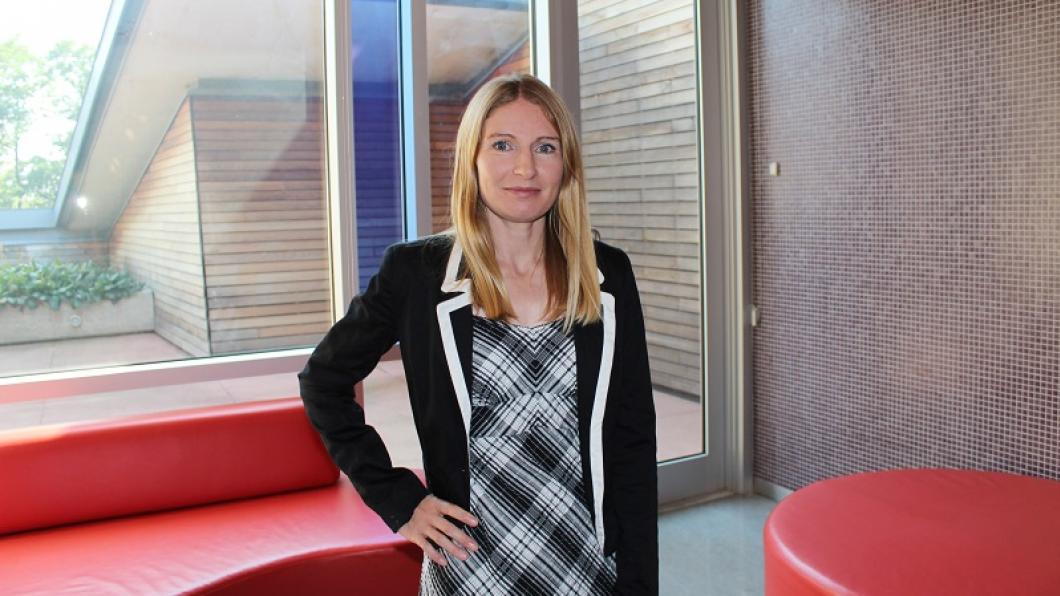
Youth with physical disabilities have same career aspirations as other youth, finds new study by researchers
Arts. Education. Law. STEM. Healthcare. These are just some of the wide-ranging careers that youth living with physical disabilities aspire to according to researchers at Holland Bloorview's Bloorview Research Institute (BRI) .
Yet, these youth face many obstacles such as negative attitudes, discrimination, transportation, and communication skills, says Dr. Sally Lindsay, principal investigator of a new study funded by Social Sciences and Humanities Research Council.
“No one has really studied the career aspirations of young people with physical disabilities,” says Dr. Lindsay, who heads up the TRAIL Lab at the BRI. “They tend to have unique social and developmental needs, and encounter different challenges. Given that their condition is often visible, they often have difficulties in mobility, speech, independence, coping and stigma.”
Indeed, 36 percent Canadian students with disabilities, ages 18 to 23, are working compared to nearly 54 per cent of youth without disabilities. This trend is concerning, says Dr. Lindsay, because people who are differently abled are more likely to experience unemployment and live below the poverty line.
Dr. Lindsay and her research team analysed a discussion forum that was part of a larger study on the effectiveness of an e-mentoring intervention program for youth with physical disabilities. Some 44 youth who completed high school and were looking for work, or were attending university, participated in a group-based online forum that contained 12 different modules such as employment readiness, managing disability at work and social networking. One of the modules focused on career aspirations. In this module, the youth answered questions based on what they hope do to in their career, and what they were hoping for from their employers and co-workers.
The researchers found that youth with disabilities have the same career aspirations as all other youth – a result that is not entirely surprising to Dr. Lindsay, but one she says might be for others who have underestimated their skills. In addition, some of the barriers they faced are transportation-related (unable to travel to a job if transit was not accessible), education-related (unable to attend a certain program at a university if that institution did not have accessible residences for instance, which limited their choices), attitudes and discrimination from educators and lowered expectations of parents, and the physical nature of jobs (unable to manage certain physical aspects of entry-level jobs). In addition, some youth indicated there was a lack of volunteer opportunities and support from some families.
Dr. Lindsay recommends that educators and parents should tell their students not to sell themselves short when it comes to career aspirations. “Don’t underestimate their abilities. Let them dream big. If they need adjustments, they’ll figure out what they need to do,” says the scientist, who is also an associate professor at University of Toronto’s Rehabilitation Sciences Institute.
As for the youth themselves, Dr. Lindsay says they should try to match their interests with their abilities. She also recommends that youth should have more guidance at an earlier age how to navigate transportation and also receive more opportunities to be exposed to STEM fields.
The study on career aspirations is closely connected with the ongoing research at the TRAIL Lab, particularly the HAPPY Project, a project that is focused on enhancing inclusive employment for youth with disabilities. In this project, Dr. Lindsay is leading the team in developing evidence-informed, gender-responsive solutions on disability disclosure and workplace accommodations.
In addition to this study, the research team is also collecting data on how youth with and without disabilities have been impacted by COVID-19 in terms of employment, unemployment and volunteer opportunities.
The study, Career Aspirations and Workplace Expectations Among Youth with Physical Disabilities, has been published online in the journal, Disability and Rehabilitation. The study’s co-authors are: Elaine Cagliostro, Bloorview Research Institute at Holland Bloorview Kids Rehabilitation Hospital; Joanne Leck, Tefler School of Management at the University of Ottawa; and Jennifer Stinson, Lawrence S. Bloomberg Faculty of Nursing at the University of Toronto.